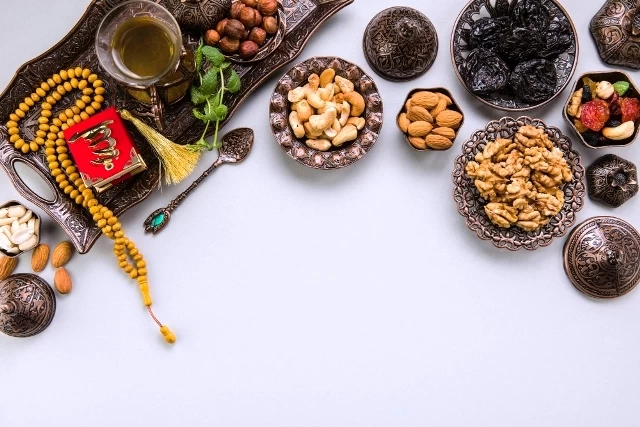
Ramadan Fasting
- Ramadan Fasting
What is Fasting?
While there may be variations in the practice of fasting, fasting or similar types of hunger and abstinence practices can be found in all beliefs and cultures from the time of Adam to the present day. It is known that fasting is a widespread worship in Judaism and Christianity, performed for various purposes such as obtaining the pleasure of the Creator, mourning, asceticism, abstinence, self-control, and atonement for sins, through various practices.
Today, there is also the concept of "Intermittent Fasting" for dietary purposes, which most of us are familiar with, and this concept differs from all these fasting concepts.
In this article, I will talk to you about "Ramadan Fasting" or "Islamic Fasting".
The month of Ramadan marks the beginning of a spiritual journey for Muslims. This month, where fasting and worship come together, provides many benefits for both spiritual and physical health. Fasting for Muslims is not only limited to hunger and thirst; it is also associated with important acts of worship such as patience, gratitude, and self-discipline. Self-discipline is also the thing I focus on most in my diet studies.
When we are hungry, we see how our energy drops, and along with it, how our other functions are affected. Ramadan makes us think, "Maybe we could go without eating." Or when we fast for a long time, it really creates an awareness that "My body needs energy."
Physically, fasting has positive effects on health. Eating and drinking less provides an opportunity for rest and healing for the digestive system.
As dietitians, we want to rest the organs for a long time during normal times, especially at night. Our stomachs and intestines are made up of muscles too, and we don't want them to deal with digestion at night.
Another, perhaps the most important benefit of fasting, is the activation of autophagy mechanisms in response to hunger. Autophagy is the cleansing process that allows the body to break down old cells for reuse. When cells are deprived of food and under stress, they enter a natural state and perform autophagy.
The discovery of explanations related to autophagy brought Yoshinori Ohsumi the 2016 Nobel Prize in Physiology or Medicine.
Studies have shown that disruptions in the autophagy mechanism are associated with aging, diabetes, obesity, inflammation, lysosomal storage diseases, cardiovascular, neurodegenerative diseases, and cancer.
The reason caloric restriction extends lifespan is also because of this. Eating high-calorie meals that satisfy our desires excessively and without breaks actually strains metabolism. It increases insulin levels, leading to fat accumulation and overweight problems.

What to Consider While Fasting During Ramadan?
It is also important to eat healthily and balanced during the month of Ramadan. While fasting, it is important to follow a balanced nutrition plan for iftar and suhoor meals. At iftar, starting with a light soup followed by a balanced meal containing protein, carbohydrates, and fiber can be preferred. For suhoor, foods that are filling and easy to digest should be preferred. Paying attention to water consumption is also important. Also, avoiding excessive consumption of sweets and fatty foods after iftar is important for healthy eating.
Practically, the following steps can be followed to implement these:
- Open your fast with 1 ladle of soup / 1 glass of water / 1 olive or date.
- Wait as long as you can (5-10 minutes).
- Take the first bites with a focus on protein and vegetables.
- Complete the menu with complex carbohydrates rather than processed carbohydrates like white flour products.
- Choose milk-based desserts 1-2 times a week to satisfy sweet cravings.
- Consume 1-2 servings of fruit and a handful of nuts as snacks during normal times.
- Consume plenty of water, fluids, and herbal teas throughout the day to avoid dehydration.
Another important point to consider when fasting during Ramadan is not to skip suhoor. Not experiencing the side effects of not waking up for suhoor does not mean that this is a healthy practice. In fasting without suhoor, the fasting period is prolonged, causing the body to weaken.
Take care of yourself. I want to end this article with one of my favorite Ramadan phrases:
"O Fasting, Guide Us"
Ramadan Mubarak…

Edanur Serçe
Nutritionist and Dietitian





